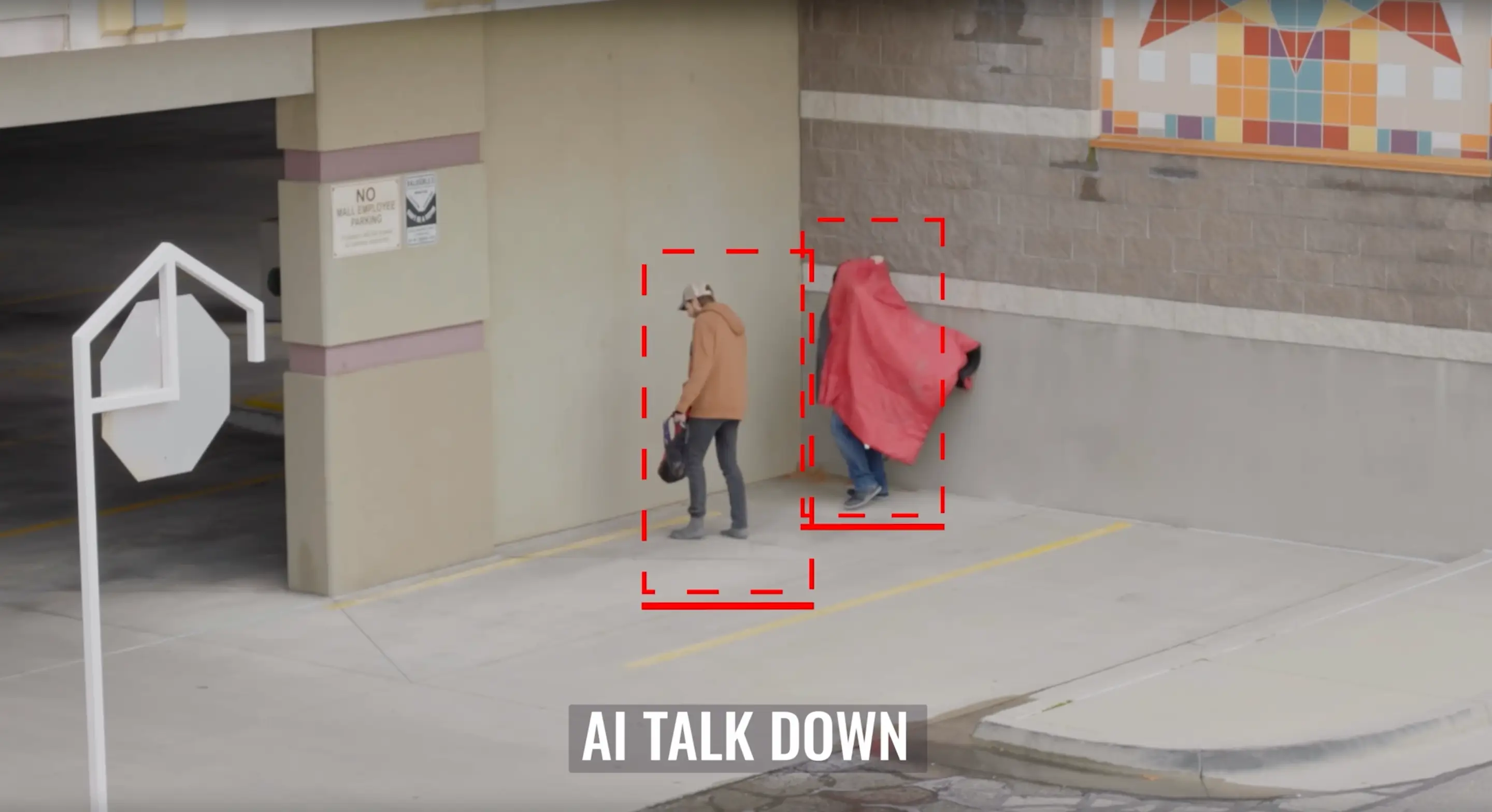Summary
- What is Agentic AI? A new generation of AI that operates independently, making real-time decisions and taking action without human intervention.
- How it differs from traditional AI: Instead of just analyzing data, Agentic AI adapts, responds, and learns, enabling smarter security automation.
- Real-world security applications: It can enhance deterrence, reduce false alarms, and automate evidence gathering for faster, more effective security.
- Why it matters: Agentic process automation is shaping the future of security.
Artificial intelligence (AI) is nothing new. It has played a role in security for years, helping detect threats and analyze surveillance footage. But until fairly recently, AI has been passive, requiring a human to interpret findings and take action.
Now, a new generation of AI is emerging—one that doesn’t just process information but thinks, decides, and acts on its own. This is Agentic AI, also referred to as generative AI agents.
This new technology is all the buzz right now, and for good reason. Agents are set to completely transform how businesses and security professionals protect assets, people, and infrastructure. In this blog, we’ll break down what agentic AI is, how it works, and how agentic process automation could completely change the security playbook.
What Is Agentic AI?
Agentic AI is artificial intelligence that can operate independently, make real-time decisions, and take action without human input.
Agentic AI vs. Traditional AI
If AI has been around for years, what makes agentic AI so groundbreaking? Let’s explore the key differences between these two technologies.
1. Passive vs. Active AI
Traditional AI: Processes information, detects patterns, and outputs recommendations. It is reactive and relies on human operators to take the next step.
Agentic AI: Not only analyzes data but determines the appropriate response—and can execute that response without a human telling it to do so.
2. Rule-Based vs. Adaptive Learning
Traditional AI: Follows predefined algorithms and rule sets, meaning its responses are limited to what it has been programmed to recognize.
Agentic AI: Can learn from experience and adapt to new and evolving situations, rather than being constrained by pre-written instructions.
Static vs. Contextual Decision-Making
Traditional AI: Applies the same logic regardless of context. If two situations appear similar, it treats them the same, even if additional factors should change the response.
Agentic AI: Considers context, factoring in time, location, past events, and environmental conditions to make situationally appropriate choices.
Security Use Cases: How Gen AI Agents Could Transform Physical Security
Hear from our CTO on jobs to be done by agentic AI:
1. Learning and Adjusting to Criminal Tactics
Bad actors often try to outsmart security systems by exploiting blind spots, testing response times, and adapting their tactics to avoid detection. Because traditional AI relies on fixed datasets and rule-based programming, it struggles to keep up with these evolving threats because it can only recognize and react to what it has been explicitly trained on.
Agentic AI can learn from real-world interactions, so its detection capabilities can be refined and it can adjust its response strategies accordingly. This makes it far more effective at countering criminal tactics than traditional security solutions.
2. Personalized Deterrence
Deterrence is only effective if criminals believe there’s a real threat of consequences. Particularly bold offenders may even ignore generic warnings entirely if they think the security system isn't actively watching them and the threat of immediate retaliation is low.
Agentic AI allows for more personalized deterrence. Instead of just triggering alarms or flashing lights, it could deliver real-time verbal warnings that directly address an intruder’s appearance or behavior—something traditional security systems can’t do.
According to LVT's Chief Technology Officer, Steve Lindsey, “Now, we can actually customize a talk-down message. We could say something like, “You in the red hat doing this bad activity, that is not authorized here, please stop,” and it takes people aback when they hear that. It takes the deterrence to a whole new level.”
3. Documentation and Evidence Gathering
After an incident occurs, personnel often spend hours or days manually reviewing footage and verifying key details. By the time teams piece together what happened, the damage is already done, and those responsible are long gone.
Agentic automation makes it possible to tag key footage, cross-reference multiple data sources, and compile structured reports in real time. This gives personnel immediate access to critical evidence, strengthens cases, and reduces investigative costs.
The Future of Security: Smarter, Faster, More Autonomous
Gen AI agents could change security as we know it by enhancing deterrence, reducing false alarms, improving response times, and more. As Lindsey put it, “Threat deterrence only works if the bad guys believe they’ll get caught. Agentic AI helps ensure that happens in real-time.”
But to embrace this emerging technology, you need the right partner. That’s where LVT comes in. Our best-in-class surveillance solutions are shaping the future of the industry, helping enterprises stay two steps ahead of crime.
Ready to take the next step? Schedule a demo today to get started.




